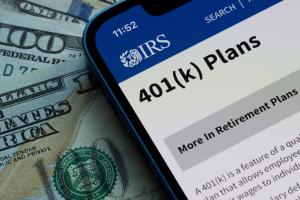The One Mistake Most People Make With 401(k) Contributions
Kicking the can down the road can create tax problems in retirement. Paying taxes on some of your retirement savings now is important.
BINGHAM FARMS, MI, UNITED STATES, June 29, 2022 /EINPresswire.com/ -- The IRS has a few rules when it comes to 401(k)s and taxes.
The first is that we have to start taking distributions from our 401(k)s once we reach age 72.
The second rule is that if we don’t pay the taxes on our distributions fast enough, the IRS will make us pay a higher percentage every year. This is called Required Minimum Distributions, or RMDs.
The third rule is that if we die without paying the taxes on our 401(k), our beneficiaries will have to pay them.
So, what’s the best way to avoid these problems? The answer is simple: start paying taxes on your 401(k) while you are still working.
When it comes to saving for retirement, there is a lot of bad advice out there. One of the most common pieces of bad advice is to tax defer contributions to our 401(k) the entire time we are working. This can actually create more problems down the line and can end up costing us more money. In this article, we will discuss why (and when) we should start paying taxes on our 401(k) contributions, and how to do it the right way.
Most people are advised to tax defer their 401(k) contributions from the very beginning and continue doing so all the way to retirement. The thinking is that, since these are likely our highest taxed years, we might as well defer the taxes until after retirement. The problem is, once retired, if we don't pay the taxes on our retirement savings fast enough the IRS comes knocking and makes us pay more. This is called Required Minimum Distributions and are often a major pain point for retirees in their 70s and beyond.
We also need to consider our estates and how our beneficiaries will be taxed on inheritance. The responsibility for unpaid taxes on tax deferred retirement accounts (401(k), 403(b), IRA, etc) will be passed on to our beneficiaries when we are gone.
A better strategy is to start paying taxes on our 401(k) contributions once it makes financial sense. There's no single formula that will fit every person. This will require a bit of critical thinking, but it's still a fairly simple strategy.
Consider this:
Early on in our careers we will likely be at a lower wage and will need our "take home pay" to be as high as possible. So it makes sense to tax defer our 401(k) contributions at that time in order to increase the amount of money in our paychecks. Also, once we have a family our expenses will be much higher so, again, it makes sense to tax defer our contributions. However, once we get a few raises, or a promotion or two, we may find ourselves with more disposable income. Especially once our children are a little older and no longer need childcare. This usually occurs in our 40s or 50s.
It is tempting to take that additional income and upgrade our lifestyles. But, before we do that, we should adjust our 401(k) contributions. With additional income and less expenses two things should happen in our 401(k)s. We should increase our contribution and we should start contributing after tax. This will increase our savings and decrease our tax liability in retirement.
If available, we should take this strategy a step further and contribute to a Roth 401(k) where our contributions are taxed but the growth is tax free.
And once we are age 59 ½, we can actually move money out of our 401(k)s, penalty free, into vehicles that are much more tax efficient, like a Roth IRA. And we can do this while we are still working.
There are a lot of moving parts when it comes to saving for retirement and taxes should be one of the considerations. We want to make sure we are taking advantage of all the tax breaks we can but, at the same time, not putting ourselves in a bad position come retirement.
Right now it seems that the strategy most people are using is to just to kick the tax can down the road. However, at some point, we are going to have to deal with that can. It's a good idea to speak with a financial advisor and create a plan that not only tackles retirement savings but is also tax efficient.
Jeffrey Perry
Quest Financial USA
+1 248-599-1000
email us here
Visit us on social media:
Facebook
LinkedIn
Legal Disclaimer:
EIN Presswire provides this news content "as is" without warranty of any kind. We do not accept any responsibility or liability for the accuracy, content, images, videos, licenses, completeness, legality, or reliability of the information contained in this article. If you have any complaints or copyright issues related to this article, kindly contact the author above.


